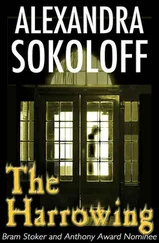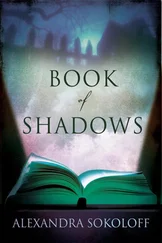And then a thought struck her that sent chills through her.
Could his death possibly have anything to do with the lab shutting down?
She grabbed her notebook and a pen and wrote quickly.
Leish was at Duke in 1965?
Leish died in 1965
The lab shut down in 1965
What happened?
Then she almost jumped out of her skin—as the phone shrilled on her desk behind her.
Laurel shot to her feet with a rush of guilt, as if she’d been caught doing something illicit. The number displayed on the phone screen was her mother’s and Laurel picked up to Meredith’s no-nonsense voice.
“Are you in the middle of something?”
Although Meredith could not possibly see what she was doing, Laurel closed her notebook and slid it into her desk drawer as if to hide it from her mother’s eyes.
“Just doing some work on my research proposal,” she said, and instantly regretted saying it aloud. Try explaining to Meredith that you’re researching poltergeists—that will go well. Maybe I left my entire mind back in L.A…
“Is everything okay, Mom?” Laurel asked quickly, to divert any questions, but in truth she was wondering. Meredith never called, never did anything, without a good reason.
“It’s your Aunt Margaret. She’s been trying to get through to you, to ask you over for dinner.”
Laurel felt another stab of guilt. Since the dream breakup, she was in the habit of going a week or more without checking her phone messages. It was another symptom of her disappearance into oblivion.
“I’ll call her tomorrow, Mom,” she promised. “I’ve just been… settling in. I’ve been busy with this project—”
“What project is that?”
“It’s an educational testing series I’m developing,” Laurel lied. There was a long silence on the phone. Laurel didn’t try to fill it.
“Laurel, are you sure you know what you’re doing?” her mother said bluntly.
Laurel felt her cheeks burn. No, Mother, I have no idea whatsoever. Aloud she said, “I’m adjusting, Mom. Really. I—Duke is great, my house is lovely. I’m sure I’ll be happy here.”
Whatever happy is.
Meredith sighed. “Call your aunt.”
“I will.” Laurel promised, and characteristically, Meredith hung up without a good-bye or another word.
Laurel set down the phone and looked around at her study: the teetering stacks of books she’d already collected on psi, telepathy— and poltergeists, don’t forget poltergeists…
She glanced uneasily up at her calendar on the wall. Her appointment with Dr. Unger was circled in red—only two weeks away and she was no closer to a research proposal than she had been on her first day. But there was something here, something she didn’t understand, but something big.
“I know it,” she said softly.
Outside the window, lightning cracked, branching white light through the sky.
The French psychologist Jacques Lacan said, “Trauma repeats almost inevitably.” Freud called this the “repetition compulsion.” Both psychologists were talking about the psychological traumas passed on within families, from generation to generation. But one theory of hauntings is that houses repeat trauma as well.
—Alaistair Leish,
The Lure of the Poltergeist
Aunt Margaret lived in an elegant older Durham neighborhood of doctors, scientists, professors, and other professionals. The house was Federal-style, with slender white columns and dark shutters at the windows, austere against the two stories of white brick. Towering magnolias lined the brick walkway; Laurel could smell their faint and waxy perfume as she walked up the path toward the door, fighting anxiety. Her aunt and uncle might be blood relatives but they were virtual strangers to her.
Laurel’s mother had fled the South at seventeen, as soon as she graduated high school, and headed for Berkeley on a full scholarship to the biology department. It was 1965, but Meredith hadn’t been looking to join any hippie revolution—she’d just chosen a school as geographically far from the South as she could get without leaving the continent, and had never looked back. As far as Laurel had been able to glean, she herself was the unintended consequence of a graduate-school affair with a professor, and for some reason unfathomable to Laurel, Meredith had decided to keep her. Meredith had never married; had bounced around from university to university in the Bay Area with Laurel in tow until she landed a tenured position at Stanford, and Laurel had grown up in university day care and in magnet schools, with a brilliant and distant parent who was more like a roommate than a mother. In all of Laurel’s life Meredith had barely mentioned her family, and Laurel had met them only twice, when she was barely out of diapers. Meredith had always seemed to her like her own continent, not part of a family at all—it was the reality Laurel had grown up with and had not thought to question.
Laurel had only the sketchiest memories of those two visits to North Carolina: lush green fields and brilliant flowers, butterflies as big as birds, a grandmother she had adored who was as maternal as her own mother was not, a stern aunt who was, if it was possible, even more aloof than Meredith, and a sweet, vague uncle with a disarming smile.
Laurel flashed back to the phone call with her mother, when she’d told Meredith she’d accepted the Duke job. In that drawn-out minute of Meredith’s silence on the phone, Laurel had realized how very little she really knew about her mother’s childhood.
“Mom? Is something—wrong?”
“Of course not,” Meredith snapped. The silence continued.
“Well,” Meredith finally said. “It’s a fine school, no question. Congratulations on the job. Call Aunt Margaret when you get in—I’m sure she’ll introduce you around.” She paused, and then added dryly, “And stock up on insect repellant—you’re going to need it.”
Laurel had hung up with a sense of confusion, feeling distinctly odd about the phone call. There was something about the undercurrents there that went beyond her mother’s constant need for control. The feeling Laurel had gotten instead was a deep sense of unease, as unlikely coming from Meredith as finding her in the kitchen baking cookies. But that was quickly forgotten in the whirlwind of packing and selling, of arranging and departing. Now Laurel felt it again, that deep unease…
Why?
She looked up at her aunt’s house, took a breath, then stepped onto the porch and rang the bell.
The door was opened by an older and sterner version of Laurel’s mother, austere, trim to the point of boniness, but with the same auburn hair and blue eyes. Laurel tried to swallow her surprise, and saw that Aunt Margaret gave her an equally startled, appraising look before she reached to embrace her stiffly, with a brusque, “Welcome to North Carolina.”
She ushered Laurel in to a darkish entry with a curving staircase up to the second floor with a baby grand piano beside the landing. A double doorway to the right open into a formal dining room; the double doorway to the left led to an equally formal living room. The furniture was antique and somber. Laurel felt her back stiffening, her posture straightening just stepping into the hall.
“It’s a beautiful house,” she said aloud, dutifully, but in truth she found it weighty and depressing.
Life with her mother had had its awkwardness, but Meredith’s sprawling clutter of books and professional papers, and predilection for old California bungalows and disregard for mealtimes (or anything to do with food in general) had given their life a sort of casual disorder. Laurel felt the gloomy rigidity of her aunt’s house working on her senses and thought she finally had a glimmer of why Meredith had gone so far away and with such finality.
Читать дальше












